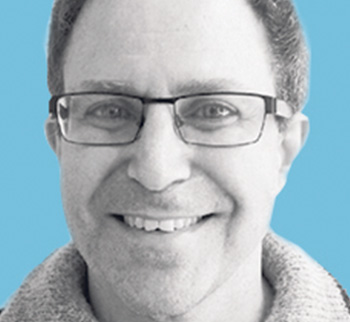The Calgary Jewish community was surprised to learn of the assaults on Jewish and Christian counter-demonstrators at an anti-Israel rally on July 18. A similar protest the week before had passed without incident, although there was no pro-Israeli presence there. Protests and demonstrations during Operation Cast Lead in 2008 and 2009 and Operation Pillar of Defence in 2012 had featured harsh and inciteful rhetoric, and, on one occasion, there had been graffiti left near the scene, but no violence had taken place.
Why was this event different? There are two main reasons.
The first was the mysterious absence of any police until after the assaults had taken place. Although the Calgary City Police had been forewarned about the likely presence of pro-Israeli counter-demonstrators, they were nowhere in sight. Had they been, they would likely have physically interjected themselves to keep the sides apart.
The second reason lay in the dynamics of the anti-Israel demonstrators. Although the principal organizers and speakers appeared to be from the university and from local “peace groups,” the significant majority of those present appeared to be of Arab origin, predominantly young, many with families including young children.
A cadre of 15 or so young men spearheaded a large group that repeatedly shouted slogans and waved flags and signs a short distance from where the speeches were taking place. It was members of this group that perpetrated the assaults, out of the range or control of the organizers.
In the days afterwards, leaders of the Jewish community held discussions with the police, and received assurances that they now take the possibility of violence at these gatherings more seriously. Indeed, a pro-Israel rally held at the Calgary Jewish Community Centre several days later was well guarded and secured, and resulted in one suspiciously behaving individual being arrested.
The larger question for the future has to do with relations between the Calgary Jewish and Arab communities. The Jewish leadership has always pursued efforts to establish and maintain communication and some sort of ongoing relationship with the Arab and wider Muslim communities, but there have been some challenges.
The Calgary Arab leadership itself has undergone some turbulent changes over the past year. It is not monolithic, ethnically or ideologically. More significantly, the Arab community appears to be more assertive vis-a-vis Arab-Israeli issues as its numbers increase. There are questions as to how well some of the Arab diaspora communities are integrating into Western culture. Nevertheless, outreach efforts continue and are occasionally rewarded.
The other, and related, concern is the campus scene. The University of Calgary has a large number of students of south Asian and Middle Eastern origin, and the student leadership reflects this demographic. Combined with a left-wing student newspaper and the traditional orientation of university political activism, the singling out and demonization of Israel has increasingly infected the campus over the past few years. The next school year is expected to bring more well-attended Israel-bashing events, another “Israel Apartheid Week”, as well as attempts to advance a BDS (boycott, divestment and sanctions) agenda at the University of Calgary. The relatively smaller Hillel group is still working on an effective Israel-advocacy role.
Despite this, most of the tight-knit Calgary Jewish community feels secure and confident moving forward. The overwhelming majority of Calgarians are pro-diversity and pro-Israel, as is the mainstream media. The University of Calgary itself has strong and warm ties with Israel in many areas of study, research and other endeavours. Politically, the community has had excellent relations and representation at the federal, provincial and municipal levels. The fact that most in the Jewish community count Stephen Harper as their local member of parliament is a source of inspiration and some pride.
Overall, the recent rally underscored the solidarity within the Jewish and greater community that can help it meet the challenges at home and abroad.
David Busheikin is a lawyer living in Calgary.
